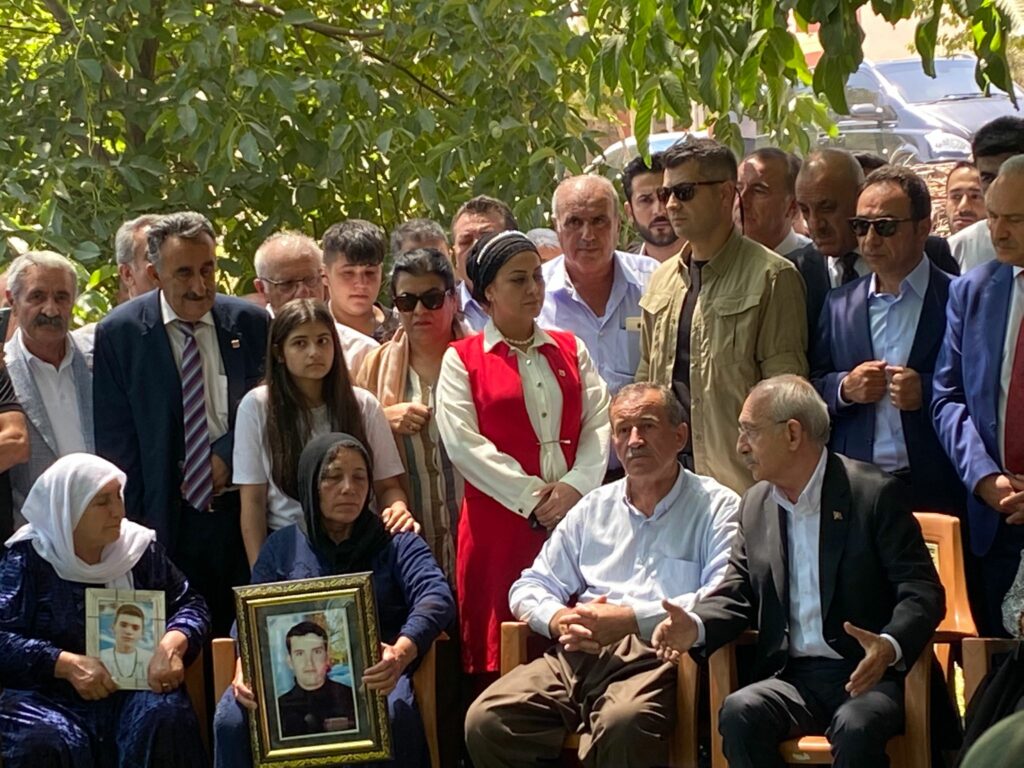Main opposition Republican People’s Party (CHP) leader Kemal Kılıçdaroğlu visited the predominantly Kurdish-populated Şırnak province in southeastern Turkey on Thursday and promised to shed light on the 2011 Roboski massacre, the perpetrators of which haven’t been disclosed by the Justice and Development Party (AKP) government, the ANKA news agency reported on Thursday.
The incident commonly known as the Roboski massacre refers to the killing of 34 male Kurdish civilians, most of them teenagers, on Dec. 28, 2011, when military jets bombed them after receiving intelligence on terrorists from the outlawed Kurdistan Workers’ Party (PKK) in the Uludere district of Şırnak province near the Turkish–Iraqi border.
In a move that brought him appreciation, Kılıçdaroğlu promised last November to acknowledge the injustices of the current and previous governments and to make amends for the suffering they caused various segments of society if his party comes to power in the 2023 elections.
Among the people and groups listed by Kılıçdaroğlu were those who had suffered from political persecution, including thousands of Kurds who were subjected to torture in Diyarbakır’s notorious Military Prison No 5 in the 1980s and ’90s and families of victims of the Roboski massacre.
In line with his promise, the CHP leader on Thursday visited Şırnak, along with his wife Selvi Kılıçdaroğlu, CHP Ankara deputy Levent Gök and chief advisor Erdoğan Toprak, and met with the families of the victims of the Roboski massacre.
Kılıçdaroğlu spoke to the press afterward, underlining that they can only make amends for the suffering the government caused those families if they shed light on the Roboski massacre and disclose its perpetrators.
“We lost 34 of our children [in the 2011 massacre]. Eighteen of them were younger than 18. The pain still hasn’t subsided. If justice is to come to this country, this pain must be relieved. This case needs to be clarified. I came here to promise to shed light on this case,” he said.
Kılıçdaroğlu also visited the southeastern city of Diyarbakır back in March. He had attended public meetings and talked to opinion leaders there, reiterating his desire to resolve the Kurdish issue at every chance.
The Kurdish issue, a term prevalent in Turkey’s public discourse, refers to the demand for equal rights by the country’s Kurdish population and their struggle for recognition.

